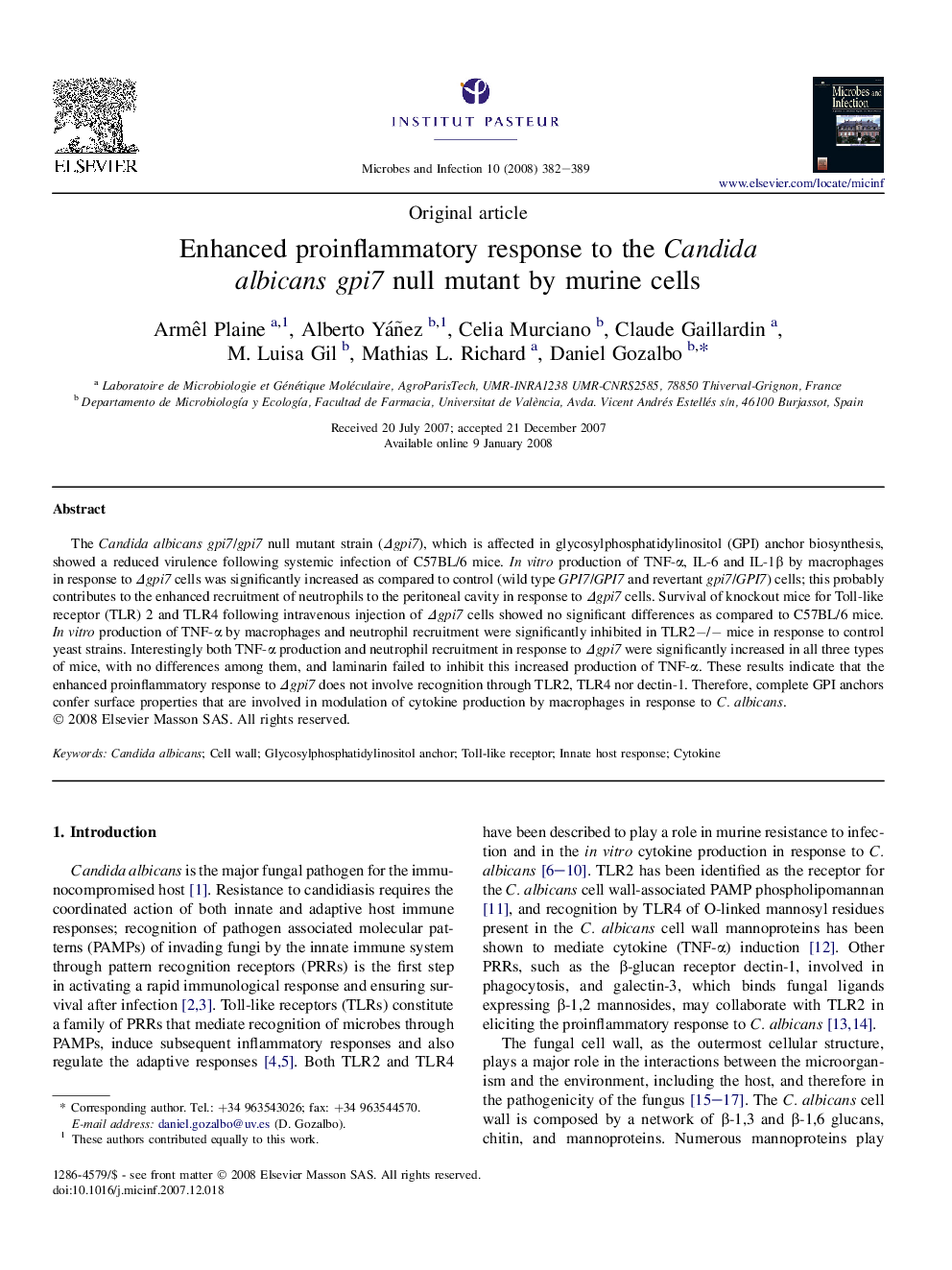| Article ID | Journal | Published Year | Pages | File Type |
|---|---|---|---|---|
| 3415339 | Microbes and Infection | 2008 | 8 Pages |
The Candida albicans gpi7/gpi7 null mutant strain (Δgpi7), which is affected in glycosylphosphatidylinositol (GPI) anchor biosynthesis, showed a reduced virulence following systemic infection of C57BL/6 mice. In vitro production of TNF-α, IL-6 and IL-1β by macrophages in response to Δgpi7 cells was significantly increased as compared to control (wild type GPI7/GPI7 and revertant gpi7/GPI7) cells; this probably contributes to the enhanced recruitment of neutrophils to the peritoneal cavity in response to Δgpi7 cells. Survival of knockout mice for Toll-like receptor (TLR) 2 and TLR4 following intravenous injection of Δgpi7 cells showed no significant differences as compared to C57BL/6 mice. In vitro production of TNF-α by macrophages and neutrophil recruitment were significantly inhibited in TLR2−/− mice in response to control yeast strains. Interestingly both TNF-α production and neutrophil recruitment in response to Δgpi7 were significantly increased in all three types of mice, with no differences among them, and laminarin failed to inhibit this increased production of TNF-α. These results indicate that the enhanced proinflammatory response to Δgpi7 does not involve recognition through TLR2, TLR4 nor dectin-1. Therefore, complete GPI anchors confer surface properties that are involved in modulation of cytokine production by macrophages in response to C. albicans.
